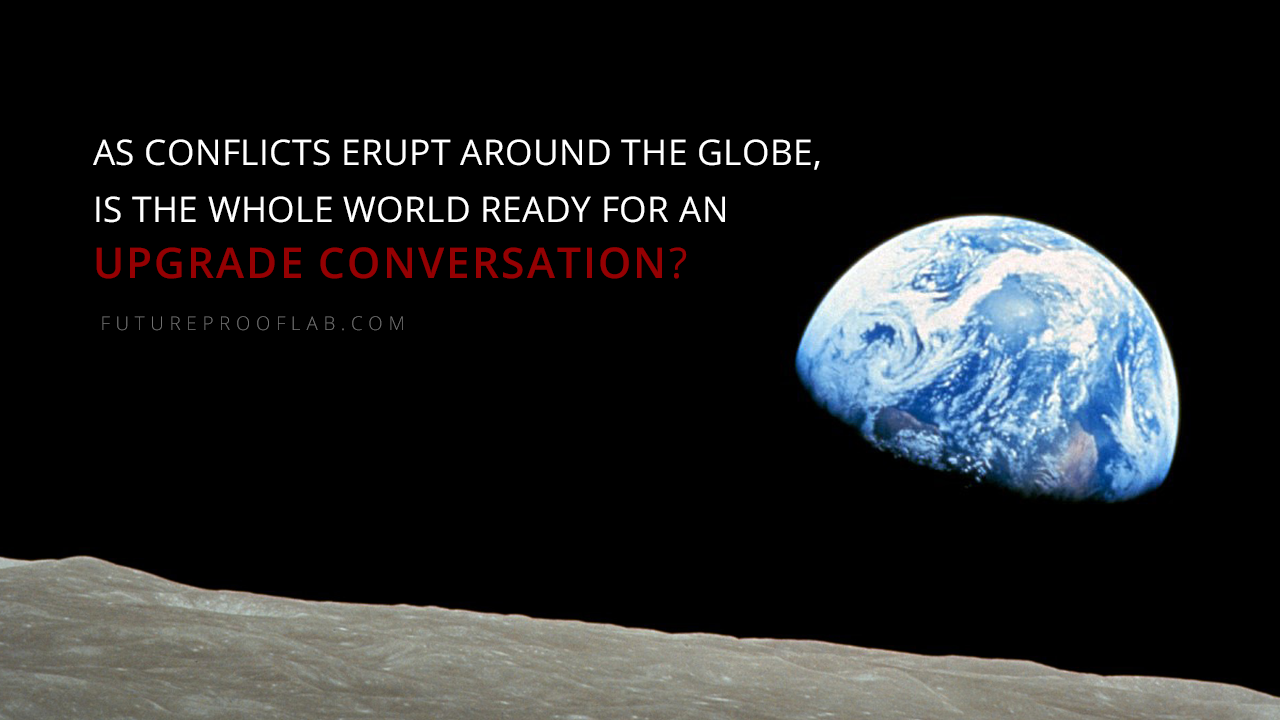Maybe the whole world needs an upgrade conversation

I was speaking to my coach this week about scaling our Future Proof Lab business in order to help more people find their place in the future and solve wicked problems.
“Oh,” she said, “you need to have an upgrade conversation”.
A conversation about what better looks like and what skills, abilities and mindsets are required to make better possible.
Including what the status quo looks like if we refuse to change.
As conflicts erupt around the globe, the whole world is ready for an upgrade conversation.
In many of my keynotes on trends, I talk about demographics and identity.
Trends in how people are moving, being born, dying and aging affect our approach to work, policy and the way we live our lives.
This changes how and where to recruit talent and more broadly how an aging population impacts five generations in the workforce, retirement age, pensions and approach to insurance benefits (e.g. caregiving or specific to older workers).
[Side note: Mercer CFA did a recent global pensions update here with Netherlands, Iceland and Denmark at the top based on Adequacy, Sustainability and Integrity. You can see how your country fares]
Globally, while specific predictions haven’t been terribly accurate, there is a general consensus that there may be too many humans and we’re close to reaching our peak. Countries around the world are inviting knowledge workers through visas to come work and some to settle.
There is enough land for us to survive, unequally distributed, especially as the viability of that land changes due to climate.
Which brings me to identity, which is so central to how we work and approach the world.
When we struggle to change, questions of identity are often at play. My work focuses on individuals and companies. Common questions are:
Are we holding on to past success too tightly (e.g. Kodak)?
Is there a conflict that gives us a sense of belonging, like a sports team rivalry, that may actually be holding us back?
But in this moment I’m asking myself also:
Can we not change because the communities we identify with make us feel like our lives matter?
- And -
Could that community include all of us?
After all, when we zoom out like an astronaut from space we see that one shared world is the reality (they call this cognitive shift the overview effect).
Medecins San Frontieres, the International Sustainability Standards in financial reporting or shared governance for genetics come to mind as examples of what is possible when the goals are larger.
When One Shared World is THE goal.
Last week’s blog asked big questions around what we have (status quo) and what we can imagine (preferred futures).
When we look out at the status quo and consider where that gets us as a species, are we OK with the trajectory that we are on?
Or do we need an upgrade conversation?

